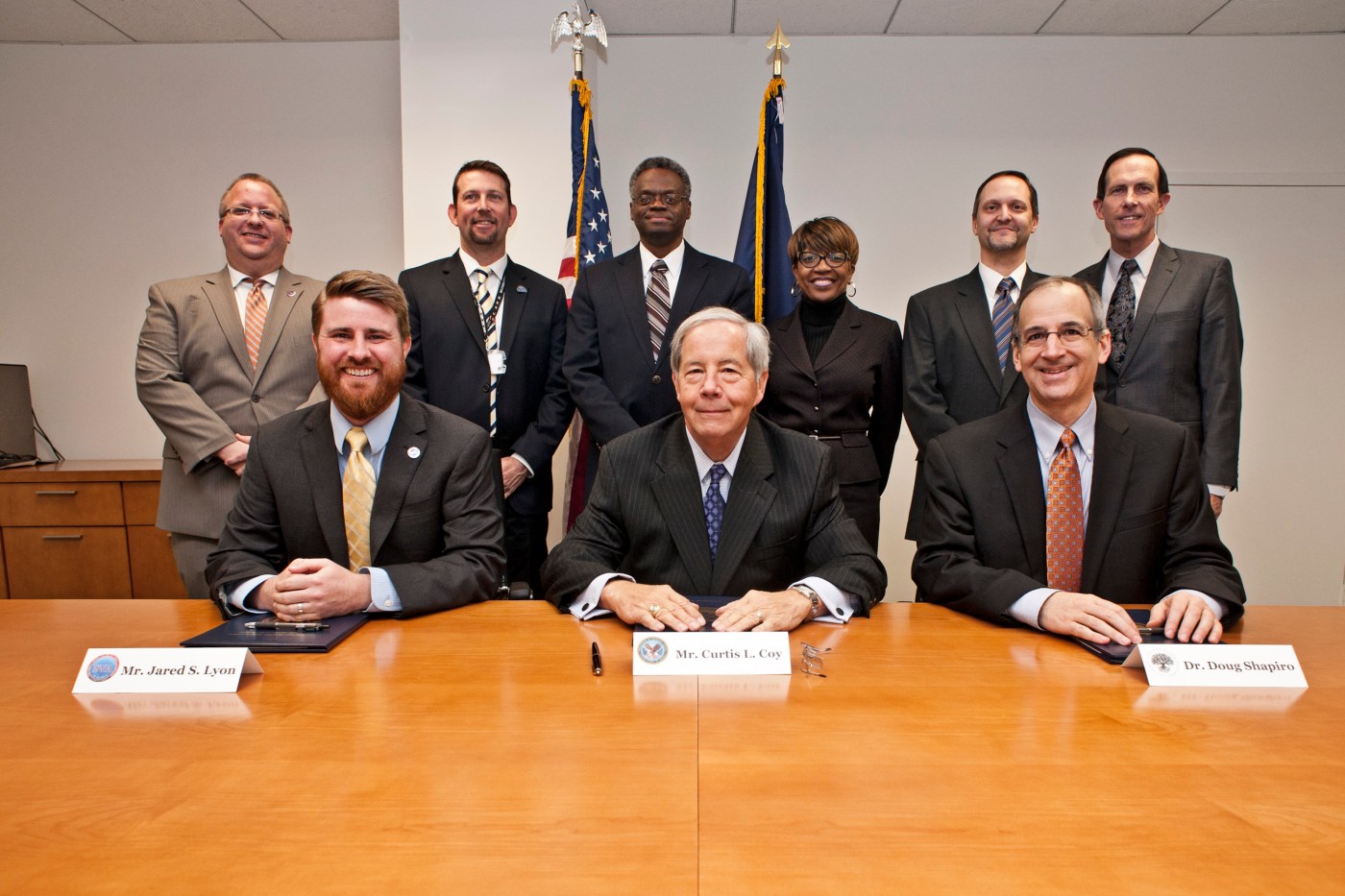Last year a joint effort of the Veterans Benefits Administration (VBA), National Student Clearinghouse, and Students Veterans of America (SVA) gave new insight to how our most recent Veterans are using their GI Bill and how they are performing. The report, named the Million Records Project (MRP), was our first look at previously unavailable data to help us adapt policy to better serve student Veterans.

This MOU allows VBA to better track student Veteran data such as the amount of time it took them to receive their degrees.
The report provided much needed data on GI Bill students and their academic outcomes, but only reported on high level outcomes, such as completion, time-to-degree, and level of education.
The National Veteran Education Success Tracker (NVEST) is the next phase of this research and builds upon those initial findings. On Oct. 29, VBA, the Clearinghouse, and SVA signed a Memorandum of Understanding to begin this next phase.
In the next phase, the sample we research will allow us to see when—in their academic careers—student Veterans withdraw from school, how often they transfer among schools, and how long they remain enrolled. Measuring these outcomes is critical to empowering colleges and universities to better support their student Veteran population, and NVEST will identify when Veterans need that support the most.

NVEST will allow VBA to better track student Veterans data so that VA and educational institutions can better meet their needs.
The sample will include student Veterans who used the Post-9/11 GI Bill from its inception (August 2009) through the end of 2013, providing a comprehensive look at the substantial investment made by both Veterans and taxpayers.
We expect to release initial findings beginning Spring 2016, and I look forward to sharing our findings and insights.
Curtis Coy is VA’s Deputy Under Secretary for Economic Opportunity
Topics in this story
More Stories
In this news post, we explore the various options designed to keep you in your home, offering hope and possible solutions for when/if you experience financial hardship.
Vietnam Veteran David Chee is among the many Native American Veterans and service members who have dedicated their lives to military service. Chee proudly served with the Army's 82nd Airborne, parachuting into the jungles of Vietnam. Chee now owns a home he purchased on Navajo tribal lands with the help of the VA Native American Direct Loan.
For Veterans, donating to charities—especially those that support fellow service members—feels like a meaningful way to give back to the community. However, Veterans and their loved ones must remain vigilant and learn to protect themselves from charity scams.







I appreciate the opportunity to complete my education with the vocational rehab Ch 31. Thank you for supporting it. USN 1975-1997 E6
While I realize this may be important to some, I ask, HOW IS IT HELPING VETERANS? All of these BIG, important, people; at BIG, important meetings, yet very little, if any, change is seen at the “Grass Roots ” level. Please, Mr. Secretary, utilize the fullest extent of your powers to show your brothers and sisters in arms, the politicians, and America, that you DO care ! I, for one, know your hands are tied, but I also know that you are NOT a quitter ! Heads need to roll, job performance, mutual respect, & continued (working!) administrative upgrades – That’s a good STAR T. You can do it; you & your team !! I promise to do my part .
Pls don’t give up on us. There are more good comments showing up on this blog! Maybe “we” just need to see & feel the fruits of not only yours, but OUR labor! Many of us appreciate the MANY hard-working DVA Employees!